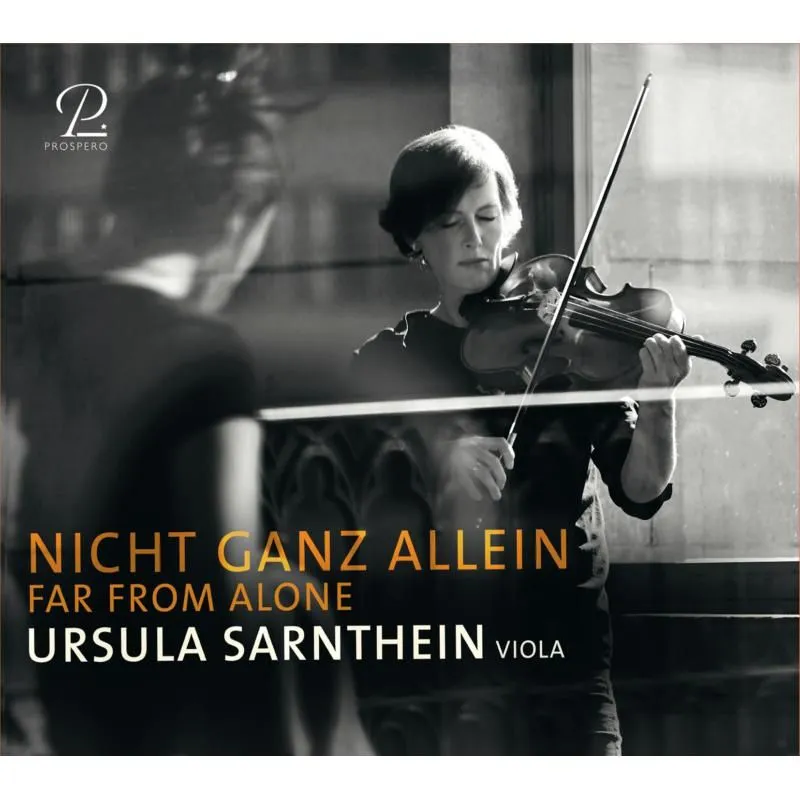
Far From Alone Works for Solo Viola by JS Bach, Biber, Hoffmeister, Penderecki, Schibler, M Ungureanu et al Ursula Sarnthein (viola) Prospero PROSP0027 58:18 mins
The title of Ursula Sarnthein’s disc references both its origins during lockdown, and the eponymous little Polka by Noldi Alder which she plays here with notable precision. Lockdown gave her the opportunity to ponder the nature of ‘aloneness’ – and to get to grips with Bach’s great Chaconne for solo violin, but on her own adopted instrument, the viola. The result is an avowedly personal compilation that sets out to forge conversations between the Baroque and the folk musics of Romania, Denmark and Switzerland. Included is a set of variations by Mozart’s friend Hoffmeister that, for all Sarntheim’s elegant polish, prove impeccably polite yet obstinately slight. And she ends with the Little Concerto for Solo Viola by Armin Schibler, its three short movements espousing, by turn, elegiac thoughtfulness, pithy caprice and dance-driven quirkiness.
Sarnthein’s technical accomplishment is immediately apparent, but even more so the gorgeous tone of her instrument, almost improbably deep and fulsome, yet bright and responsive. At the time she was enjoying the loan of the ‘Gibson’ Stradivarius, and the disc doubles as an indelible memento of a fruitful collaboration. Certainly the ‘Gibson’ lends a commanding heft to the Biber Passacaglia, her account sprucely turned out but a little unvaried – something even more apparent in the Bach whose resolute forward momentum can sound relentless. In the folk items the gloss sheen glows compellingly, though the pristine ‘finish’ can occasionally prove counterproductive. But the Romanian Doina oozes gutsiness; as does Ungureanu’s Cântec de dor, where Sarnthein is joined by fellow-violist Elisabeth Harringer. Far from alone indeed!
Paul Riley
